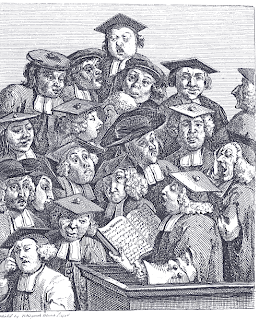These faults were very evident in a Noreena Hertz pamphlet entitled Coop Capitalism just published by Cooperatives UK. Hertz is, apparently, one of these young celebrity Economists who have been taken up by the mass media and one of whose faults is to present ideas as if they were new. I’m not sure, for example, if her use of the term "gucci capialism” adds to our understanding of the crisis we face – and her references to examples of cooperatives are highly selective and superficial (Mondragon gets no mention). She allows this blurb about her to appear in the pamphlet -
many have described Professor Hertz as a visionary and she is one of the most influential economists on the international stage. Her work is considered to provide a much needed blueprint for rethinking economics and corporate strategy. For more than two decades Noreena Hertz’s economic predictions have been accurate and ahead of the curve. In her number one best-selling book “The Silent Takeover”, Hertz predicted that unregulated markets and massive financial institutions would have serious global consequences whilst her 2005 best-seller, “IOU: The Debt Threat”, predicted the 2008 financial crisis. Her books have been translated into 17 languagesHere is an example of how the media treat her – but here a more serious treatment of her ideas . I realise, of course, that such a comment could be taken as an example of how the left tear one another part – but change agents need to show more modesty and generosity in their referencing of relevant work.
Labour Left has published a 300 page Red Book which can be downloaded here. Labour Left’s ambition is
to generate ethically socialist policies for inclusion in the next Labour General Election manifesto. We aim to intellectually reclaim what it means to be left and we wish to help Ed Miliband steer a course away from Neo-Liberalism. It is clear from the surge in new members, especially younger ones since the General Election in 2010, that there is an appetite for socialist policies that tame the excesses of capitalism and re-balance the UK economy in a way that is fairer to the have-notsUnfortunately, like all collections, the book’s contributions are ad-hoc (if worthy) presentations of various ideas relating to health, education and environmental issues – with no wider analysis of policy contexts nor argument as to whether the particular ideas would be supported let alone successful.
At the other end of the analytical and geographical spectrum is a major publication from the European Trade Unions Institute which, in 300 pages, looks at the changes in the infrastructure of each of the main European economies in the last 20 years. It takes as its starting point Colin Crouch’s insight about the strange non-death of neo-liberalism and is entitled A Triumph of Failed Ideas – european models of capitalism
It made me realise how seldom I have referenced the valiant efforts of various European Trade Unions and their research bodies in their tracking developments of the past decade eg the fantastic public services international research unit of the University of Greenwich which has been giving great briefings on the consequences of privatisation for more than a decade; NHS policy briefings ; European Services Strategy Unit.
But I have just come across what, for me, is the best source of radical thinking and activities in Europe – the Transform network which issues a biannual journal.






